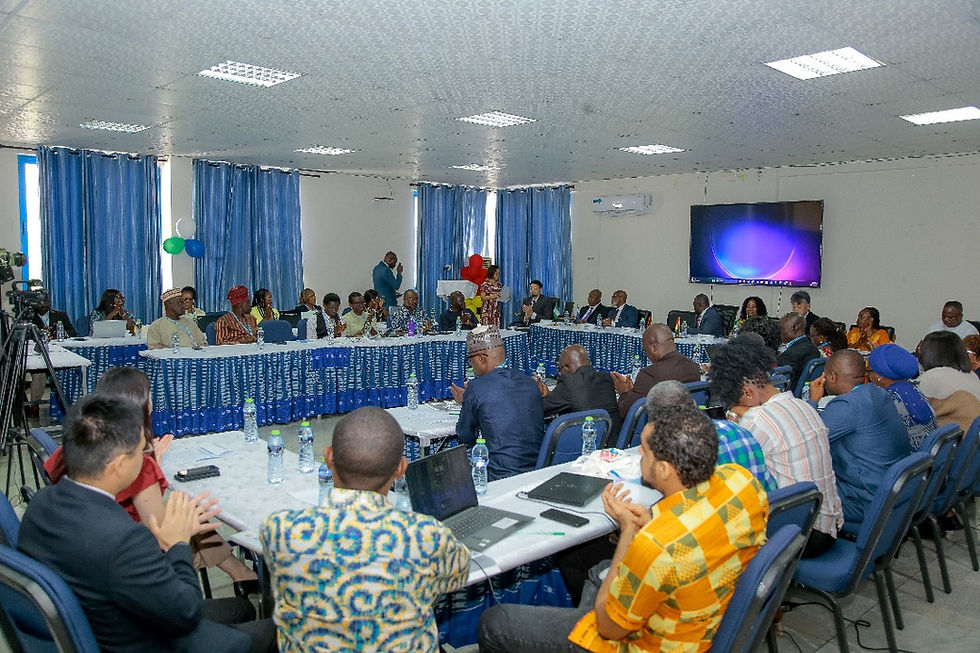SML's EMMS ushers in transparency for downstream petroleum
- Think News Online
- Apr 26, 2024
- 2 min read

In reshaping Ghana’s revenue mobilization landscape, Strategic Mobilization Limited (SML), a private firm, has demonstrated a new era of precision, transparency, and revenue assurance for the nation’s critical downstream petroleum sector.
SML’s an innovative partnership with the Ghana Revenue Authority (GRA) introduced a transformative Electronic Metering Management System (EMMS) to streamline the process of ensuring revenue assurances across the downstream petroleum sector.
Before SML’s intervention, the management of downstream petroleum operations data was a fragmented and painstaking process, riddled with inefficiencies and vulnerabilities inherent in manual systems.
Reliance on stand-alone systems made it difficult to maintain and leverage data effectively, hindering GRA’s ability to accurately regulate, monitor, assess, and tax petroleum products across the downstream and upstream sectors.
To address this challenge, SML’s state-of-the-art EMMS has digitalized the measurement and reporting of petroleum product supplies, replacing error-prone manual processes with advanced digital solutions.
The results have been nothing short of remarkable, as an independent audit by KPMG revealed an incremental volume of 1.7 billion liters and an incremental tax revenue of GHS 2.45 billion for the period under review.
This substantial revenue boost represents a significant win for Ghana, but the benefits of SML’s intervention extend far beyond mere fiscal gains.
KPMG’s assessment highlighted the qualitative advantages of the EMMS, including 24/7 electronic real-time monitoring of petroleum product outflows and partial monitoring of inflows at depots equipped with SML’s flowmeters.
This round-the-clock surveillance serves as a powerful deterrent against under-declarations, safeguarding the nation’s revenue streams.
At the heart of SML’s success lies the transformative power of digitalization and data-driven solutions. Real-time data streams provide unprecedented visibility into petroleum product flows, enabling precise tracking and accurate assessment of taxes.
This level of granular insight not only bolsters revenue collection but also enhances operational efficiency by streamlining administrative processes and enabling data-driven decision-making.
Moreover, SML’s rigorous six-level reconciliation process, coupled with the sharing of discrepancy reports for follow-up action, underscores the firm’s commitment to fostering transparency and accountability within the sector.
The digital nature of the EMMS promotes these critical pillars of good governance, as comprehensive digital records and transparent data sharing foster public scrutiny and oversight, mitigating the risks of corruption, manipulation, and misappropriation that can plague traditional, opaque systems.
SML’s pioneering model has garnered significant international acclaim, with nations like Kenya actively seeking to emulate its successful approach.
Governments across borders have reached out to learn from SML’s framework, underscoring the transformative potential that entrepreneurs can unleash when provided with an enabling environment and opportunities to pursue productive ventures.
While SML’s immediate impact has been felt in the downstream petroleum sector, the ripple effects of this pioneering public-private partnership (PPP) extend far beyond.
The government’s recent recognition of SML’s success has prompted a comprehensive assessment of potential revenue leakages in the upstream petroleum and minerals sectors, with plans to explore the implementation of similar PPP models in these critical industries.
Story by: Joshua Kwabena Smith








Comments